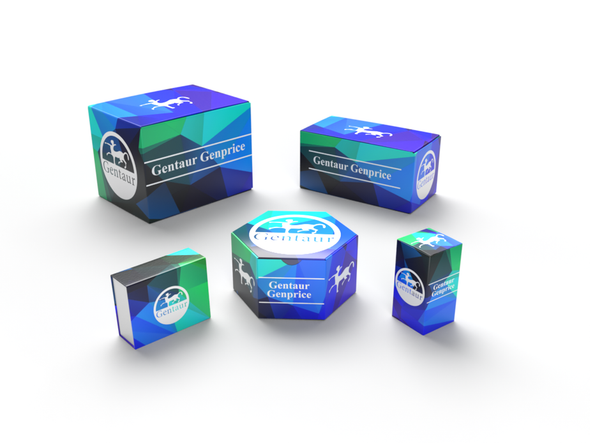763
Phospho-AKT1(Y315)/AKT2(Y316)/AKT3(Y312) Polyclonal Antibody | E-AB-68124
- SKU:
- 763-E-AB-68124-GEN
Description
Phospho-AKT1(Y315)/AKT2(Y316)/AKT3(Y312) Polyclonal Antibody | E-AB-68124 | Gentaur UK, US & Europe Distribution
Type: Phosphorylated antibody
Synonyms: AKT1/AKT2/AKT3
Application: WB
Reactivity: Human, Mouse, Rat
Host: Rabbit
Isotype: IgG
Reserch Areas: N/A
Background: The serine-threonine protein kinase encoded by the AKT1 gene is catalytically inactive in serum-starved primary and immortalized fibroblasts. AKT1 and the related AKT2 are activated by platelet-derived growth factor. The activation is rapid and specific, and it is abrogated by mutations in the pleckstrin homology domain of AKT1. It was shown that the activation occurs through phosphatidylinositol 3-kinase. In the developing nervous system AKT is a critical mediator of growth factor-induced neuronal survival. Survival factors can suppress apoptosis in a transcription-independent manner by activating the serine/threonine kinase AKT1, which then phosphorylates and inactivates components of the apoptotic machinery. Mutations in this gene have been associated with the Proteus syndrome. Multiple alternatively spliced transcript variants have been found for this gene./This gene is a putative oncogene encoding a protein belonging to a subfamily of serine/threonine kinases containing SH2-like (Src homology 2-like) domains, which is involved in signaling pathways. The gene serves as an oncogene in the tumorigenesis of cancer cells For example, its overexpression contributes to the malignant phenotype of a subset of human ductal pancreatic cancers. The encoded protein is a general protein kinase capable of phophorylating several known proteins, and has also been implicated in insulin signaling./The protein encoded by this gene is a member of the AKT, also called PKB, serine/threonine protein kinase family. AKT kinases are known to be regulators of cell signaling in response to insulin and growth factors. They are involved in a wide variety of biological processes including cell proliferation, differentiation, apoptosis, tumorigenesis, as well as glycogen synthesis and glucose uptake. This kinase has been shown to be stimulated by platelet-derived growth factor (PDGF), insulin, and insulin-like growth factor 1 (IGF1). Alternatively splice transcript variants encoding distinct isoforms have been described.
Concentration: 1 mg/mL
Storage: Store at -20°C. Avoid freeze / thaw cycles.
Immunogen: A phospho specific peptide corresponding to residues surrounding Y315 of human AKT1
Buffer: PBS with 0.02% sodium azide, 50% glycerol, pH7.3
Purification Method: Affinity purification
Dilution: WB 1:500-1:1000
Clone: N/A
Conjugation: Unconjugated
Molecular Weight(Calculated): 48 kDa/55 kDa/51 kDa/54 kDa
Molecular Weight(Observed): 56 kDa






